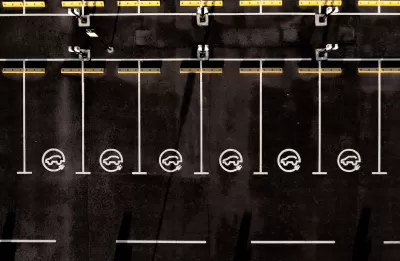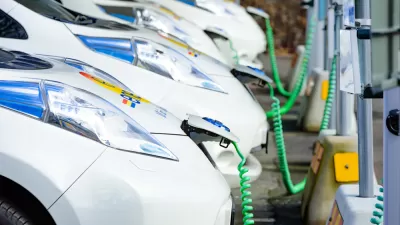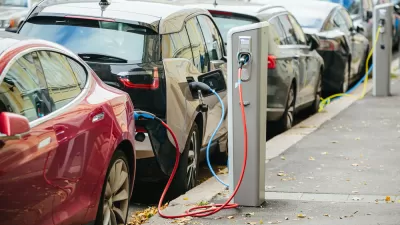A UCLA research team identifies gaps in incentive uptake and electric vehicle registration rates in disadvantaged communities.

California aims to phase out gas-powered cars by 2035, relying on increased electric vehicle (EV) adoption supported by various incentive programs. A recent UCLA Luskin Center for Innovation (LCI) report reveals significant disparities in the effectiveness of these programs, particularly in disadvantaged communities. Despite nearly a million incentives totaling close to $2 billion distributed since 2010, only about 15% of the funds have reached households in these communities.
The study also examines clean vehicle registration rates, showing that while statewide EV adoption has risen, rural areas, the urban core of Los Angeles, and lower-income communities lag behind. This trend is projected to persist through 2035, with marginalized communities falling further behind due to the lack of affordable EV options. Lead author Rachel Connolly emphasizes the need for targeted investments to ensure a just transition to clean energy in California.
To address these equity issues, the LCI report suggests several policy changes, including: increasing funding for targeted EV programs, improving vehicle financing options, enhancing the availability of used clean vehicles, expanding charging infrastructure in disadvantaged areas, and refocusing state platforms to provide financial savings rather than just advertising. These steps are crucial for California to achieve its clean vehicle targets equitably.
FULL STORY: California’s clean vehicle transition is not so equitable (yet)

Alabama: Trump Terminates Settlements for Black Communities Harmed By Raw Sewage
Trump deemed the landmark civil rights agreement “illegal DEI and environmental justice policy.”

Study: Maui’s Plan to Convert Vacation Rentals to Long-Term Housing Could Cause Nearly $1 Billion Economic Loss
The plan would reduce visitor accommodation by 25% resulting in 1,900 jobs lost.

Planetizen Federal Action Tracker
A weekly monitor of how Trump’s orders and actions are impacting planners and planning in America.

Waymo Gets Permission to Map SF’s Market Street
If allowed to operate on the traffic-restricted street, Waymo’s autonomous taxis would have a leg up over ride-hailing competitors — and counter the city’s efforts to grow bike and pedestrian on the thoroughfare.

Parklet Symposium Highlights the Success of Shared Spaces
Parklets got a boost during the Covid-19 pandemic, when the concept was translated to outdoor dining programs that offered restaurants a lifeline during the shutdown.

Federal Homelessness Agency Places Entire Staff on Leave
The U.S. Interagency Council on Homelessness is the only federal agency dedicated to preventing and ending homelessness.
Urban Design for Planners 1: Software Tools
This six-course series explores essential urban design concepts using open source software and equips planners with the tools they need to participate fully in the urban design process.
Planning for Universal Design
Learn the tools for implementing Universal Design in planning regulations.
Caltrans
Smith Gee Studio
Institute for Housing and Urban Development Studies (IHS)
City of Grandview
Harvard GSD Executive Education
Toledo-Lucas County Plan Commissions
Salt Lake City
NYU Wagner Graduate School of Public Service





























